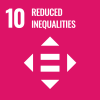
A study conducted by UGM research team involving 1,250 female respondents in Indonesia found that most women tend to ignore misinformation on WhatsApp groups because they did not want to get into an argument with other members in those groups.
Surveys and interviews conducted in Jakarta, Yogyakarta, Makassar, Banda Aceh, and Jayapura also showed that the topic of misinformation they received most was politics (87 percent), followed by personal gossip (70 percent), religious issues (68 percent), and health issues (49 percent).
Political hoax was the most common on WhatsApp groups of friends or school alumni, who were also the number one source for hate expressions they receive. Although the majority of women (74 percent) decided to ignore the hoax, a small proportion of respondents were reported actively addressing misinformation in their groups.
“The research entitled WhatsApp Groups and Digital Literacy of Indonesian Women seeks to reveal how Indonesian women use WhatsApp and what their motivations are, including how they deal with misinformation and hate speech,” said Novi Kurnia, a lecturer in the Department of Communication at the Faculty of Social and Political Sciences UGM, who coordinated the research.
This research, which was one of the winners of the WhatsApp Misinformation and Social Science Research Awards grant program by Facebook/WhatsApp, was conducted during the 2019 General Elections; from the campaign period to the announcement of the presidential election winner.
Novi said this was the first large-scale study of how Indonesian women used WhatsApp, one of the most popular mobile apps in Indonesia.
“As the role of Indonesian women shifts from the traditional role of wife and mother to more active roles in public life, the use of the WhatsApp group represents the way women navigate their domestic and professional roles,” she said.
The study found, in general, women’s digital literacy competencies were at a moderate level for various skills, but at a relatively low level for critical skills. However, there were a number of cases showing a situation where women played an important role as “digital literacy agents” in their WhatsApp groups.
If equipped with the right knowledge and skills, she added, women would have a strategic role in fighting misinformation and digital hate speech, especially ahead of the 2020 local elections.
“That’s why this research was followed up with a series of digital literacy training for women. This training will be carried out in a number of areas that Bawaslu considers to be prone to conflict and misinformation.
The launching of this research book and the series of training were conducted on Monday, April 16, 2020 at the Faculty of Social and Political Sciences UGM in the form of discussions which was attended by academics, researchers and activists working on media and women issues.



